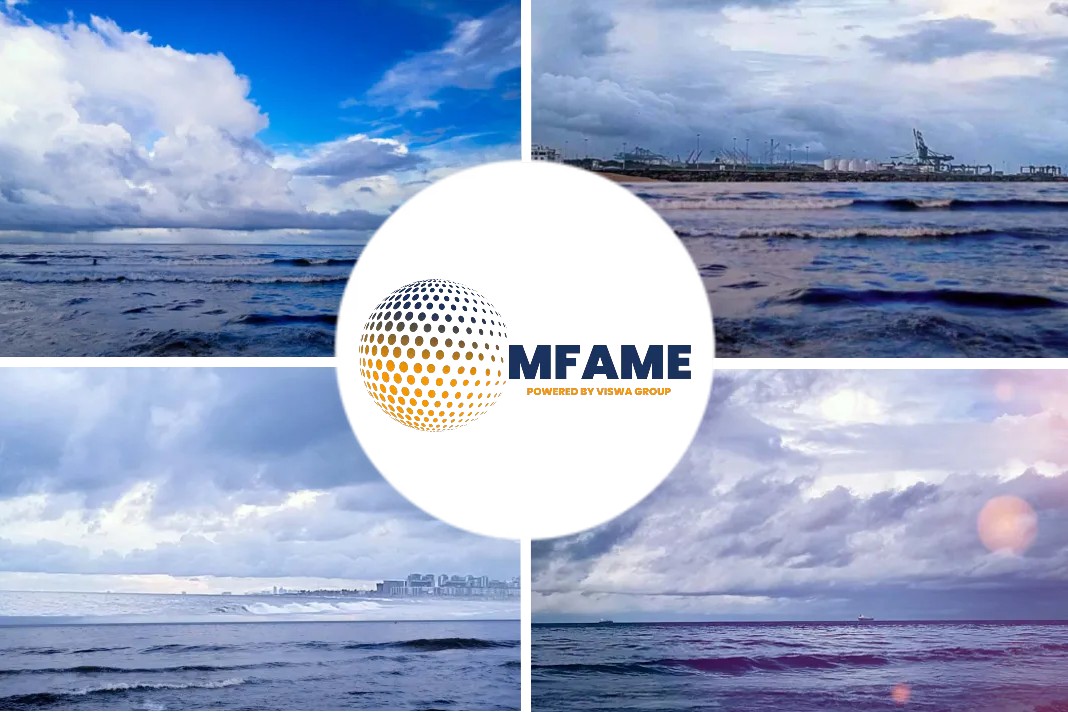The PortXL accelerator programme helps (frequently young) entrepreneurs to make their innovative concept a success. Three new talents tell us how their ideas will transform the maritime sector.
Crewless shipping
Name: Nikunj Parashar (34)
Country of origin: India
Education: Mechanical engineering and qualified ship’s captain
Number of people on team: 12
Company name: Sagar Defense
What did you come up with?
‘Sagar Defense, a system for unmanned vessels. In terms of concept, you can compare it to the driverless car. The system allows for a vessel to operate completely autonomously, without any risk of a collision with other ships. There are two variants: one that we can install on an existing ship, and one that takes the shape of an aquatic drone.’
How did you get this idea?
‘I was working as a captain in shipping. I discovered while out at sea that I hated being away from my wife and two children for so long. That’s why my wife and I decided to work on a solution. And unmanned vessels have an additional advantage: the crews are no longer exposed to threats like storms and pirates. Take the harbour patrol boats that are used to inspect a vessel in the event of a fire or risk of explosion. Our system allows the crew to work remotely from a control room – far away from danger.’
Where do you expect to be in five years?
‘Our dream is that, in the future, all ships will be unmanned. This will allow the crew to work from the safety of an office – and those who want to can spend more time with their families.’
Booking site for inland shipping
Name: Jan Snoeij (31)
Country of origin: the Netherlands
Education: Mechanical Engineering in Utrecht
Number of people on team: 4
Company name: 4Shipping
What did you come up with?
‘We’ve launched an online platform for inland shipping that allows shipping companies to book their own inland vessels. Right now, shippers still arrange their transport via charterers or freight forwarders, who spend a huge amount of time phoning around to find out which skipper can get the cargo from A to B. You could compare 4Shipping to hotel booking sites like booking.com. In the past, you needed to visit a travel agency to book your trip, now you can do it yourself.’
How did you get this idea?
‘I grew up in a skippers’ family myself, so I have first-hand knowledge of the different processes in inland shipping: things can be done a lot more efficiently. During the slump, I realised that we have more and more technical options at our disposal. Robots that perform surgical procedures at the hospital, for example, or driverless cars. But the inland shipping sector hasn’t really taken advantage of these options yet.
I saw tremendous opportunities when it comes to improving efficiency in inland shipping, which strengthens its competitive edge versus road haulage. What’s more: improved utilisation of our inland shipping capacity alleviates road congestion, which allows us to reduce the volume of CO2 and particulates emitted by trucks.’
Where do you expect to be in five years?
‘At that point it should be a piece of cake to arrange the transport of 100,000 tonnes of cargo via our website – without any further knowledge of the sector.’
Virtual reality training
Name: Sam Ryan (27)
Country of origin: United States
Education: Delft University of Technology
Number of people on team: 4
Company name: Parable
What did you come up with?
‘We make apps for virtual reality trainings. In these trainings you wear some kind of oversized ski goggles that immerse you in a virtual environment. It’s an ideal way to simulate situations that are very difficult to train for in real life.’
How did you get this idea?
‘My present colleagues and I were doing an internship at the same company. That’s where we discovered virtual reality, and realised that it was the key to a whole world of interesting opportunities. In a large company, new developments don’t always go as quickly as you’d like them to, so we started for ourselves. Trainings in the maritime sector cost a lot of time and money. People from all over the world have to travel to the same location for the training. Thanks to our apps, you can participate from any place on the planet. In addition, this method is a lot safer, since you can simulate high-risk situations like fires without putting the trainee in danger. And you can create a virtual recreation of larger-scale calamities. After all, you can hardly set a whole building ablaze for a single exercise.’
Where do you expect to be in five years?
‘We hope to have made a platform where people can actually log in themselves and compile their own trainings.’
PORT XL
PortXL is an innovation accelerator programme in the port of Rotterdam. Over the course of 100 days, PortXL helps ten young, innovative companies to make their business or concept ready for the market. Last February, ten companies were selected, after 150 interviews with start-ups from all over the world. These candidates will be supported by experienced entrepreneurs from Rotterdam’s port and maritime communities with coaching, contacts and investments.
Did you subscribe for our daily newsletter?
It’s Free! Click here to Subscribe!
Source: Port Of Rotterdam





















